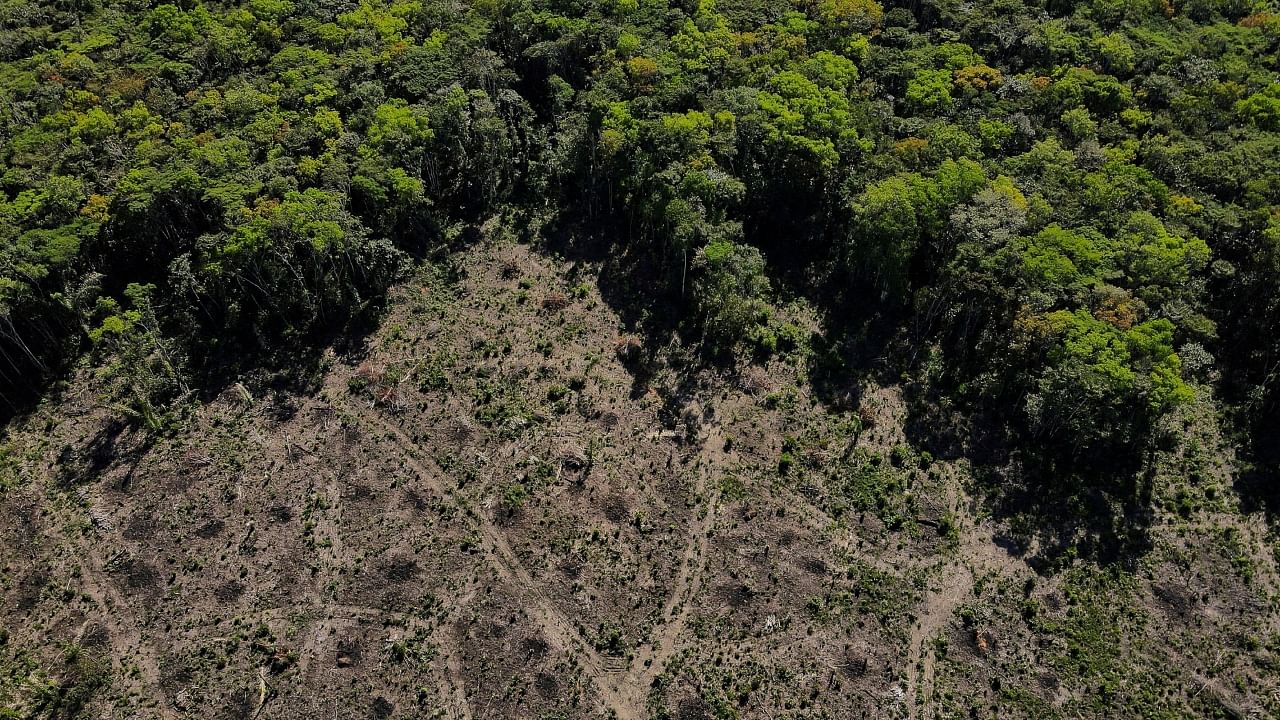
Deforestation in the Brazilian Amazon rainforest broke the monthly record for October, with the destruction of 904 square kilometers (350 square miles), official figures showed Friday.
The grim news comes less than two months before far-right President Jair Bolsonaro's four-year term ends.
The former army captain is a climate change skeptic and has been heavily criticized over policies seen as encouraging deforestation.
The DETER satellite observation system detected a three percent increase in the deforested area of the world's largest tropical rainforest compared to October 2021, making it a record for that month, according to the INPE space research institute.
The newly deforested section stretches an area just over half the size of Sao Paulo.
With two months still to go, 2022 is already the worst year for Amazon deforestation since DETER began monitoring it in 2015.
However, far higher figures of deforestation were recorded in the early 2000s.
So far this year almost 9,500 square kilometers have been destroyed, compared to the total 9,200 square kilometers deforested in 2021.
The Brazilian branch of the World Wide Fund for Nature (WWF) said deforestation and wildfires had "exploded" since last month's presidential election, in which Bolsonaro was defeated by leftist Luiz Inacio Lula da Silva.
Lula, who was also president from 2003-2010, has pledged to eliminate deforestation.
"The increase in deforestation (in October) was expected, but even so, the numbers for the first days of November are frightening, they show an unbridled race for destruction" before the change of government on January 1, said the WWF.
Under Bolsonaro, average annual deforestation increased 75 percent compared to the previous decade.
Lula confirmed on Thursday he would attend the COP27 climate summit in Egypt next week.
"The new government will have its work cut out to repair the situation, to end the perception that the Amazon is a lawless land," said WWF specialist Raul do Valle in a statement.
However, Bolsonaro's environmental policies will keep "causing damage for some time yet," said Andre Freitas from Greenpeace in Brazil.